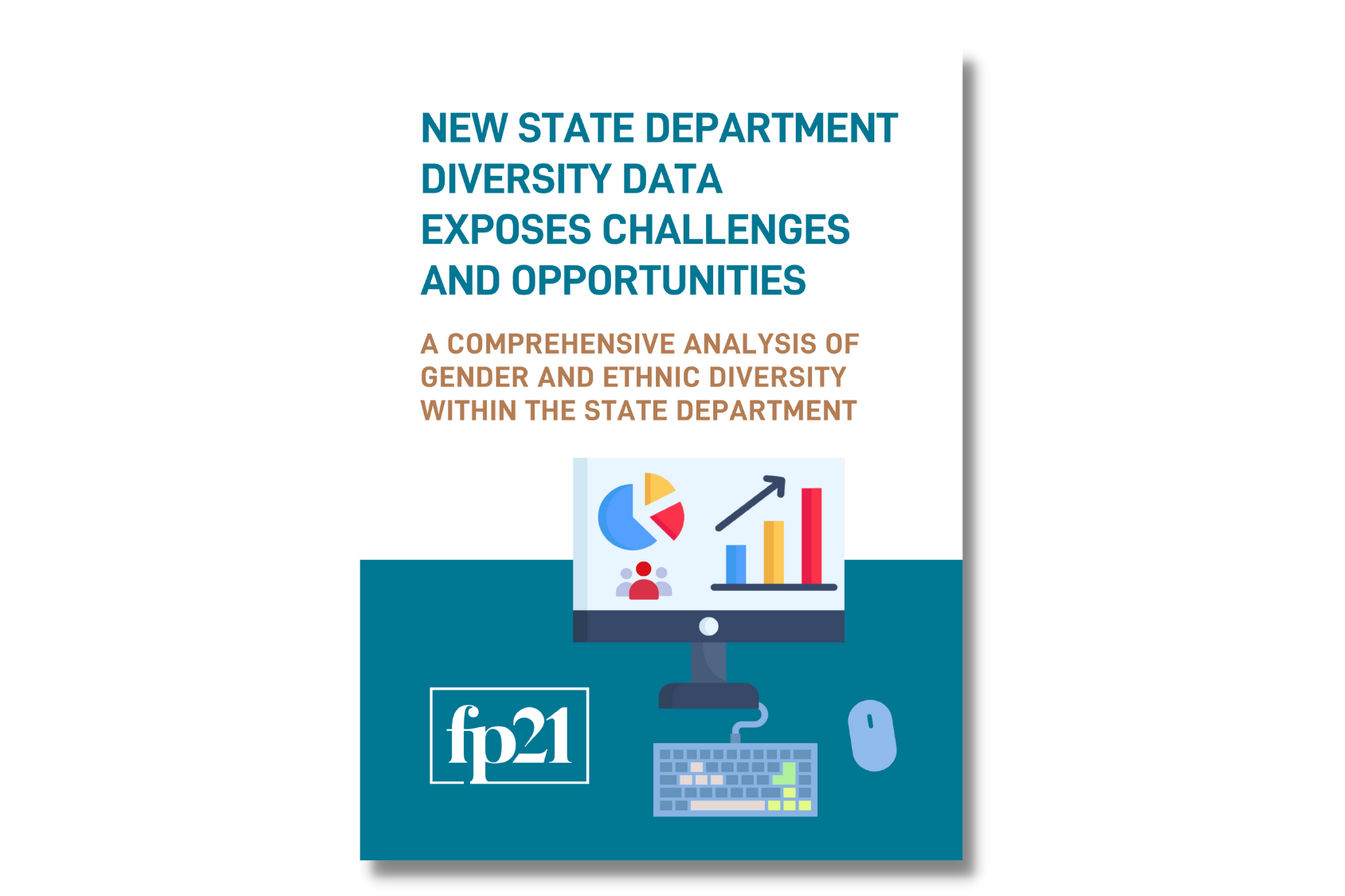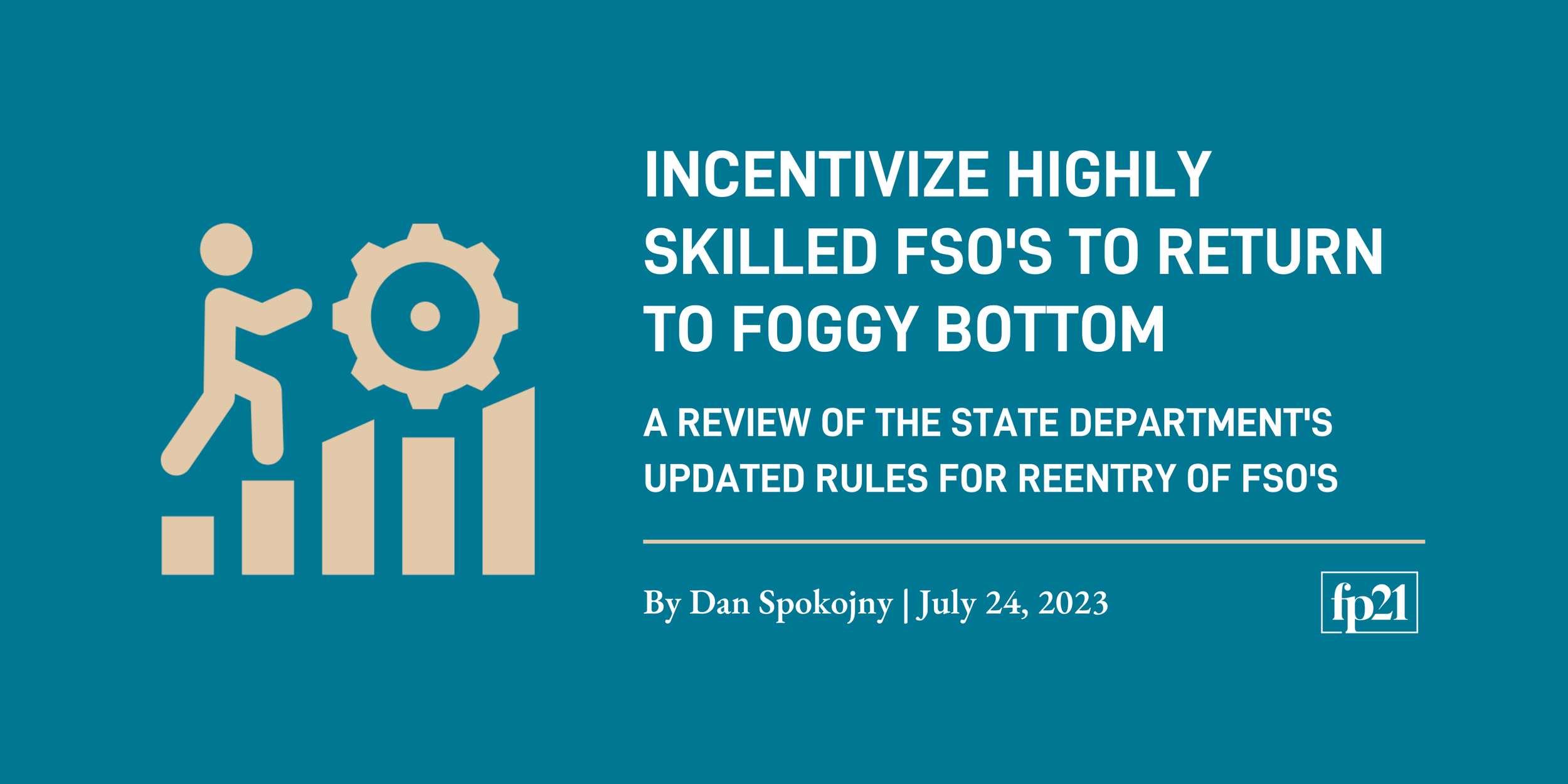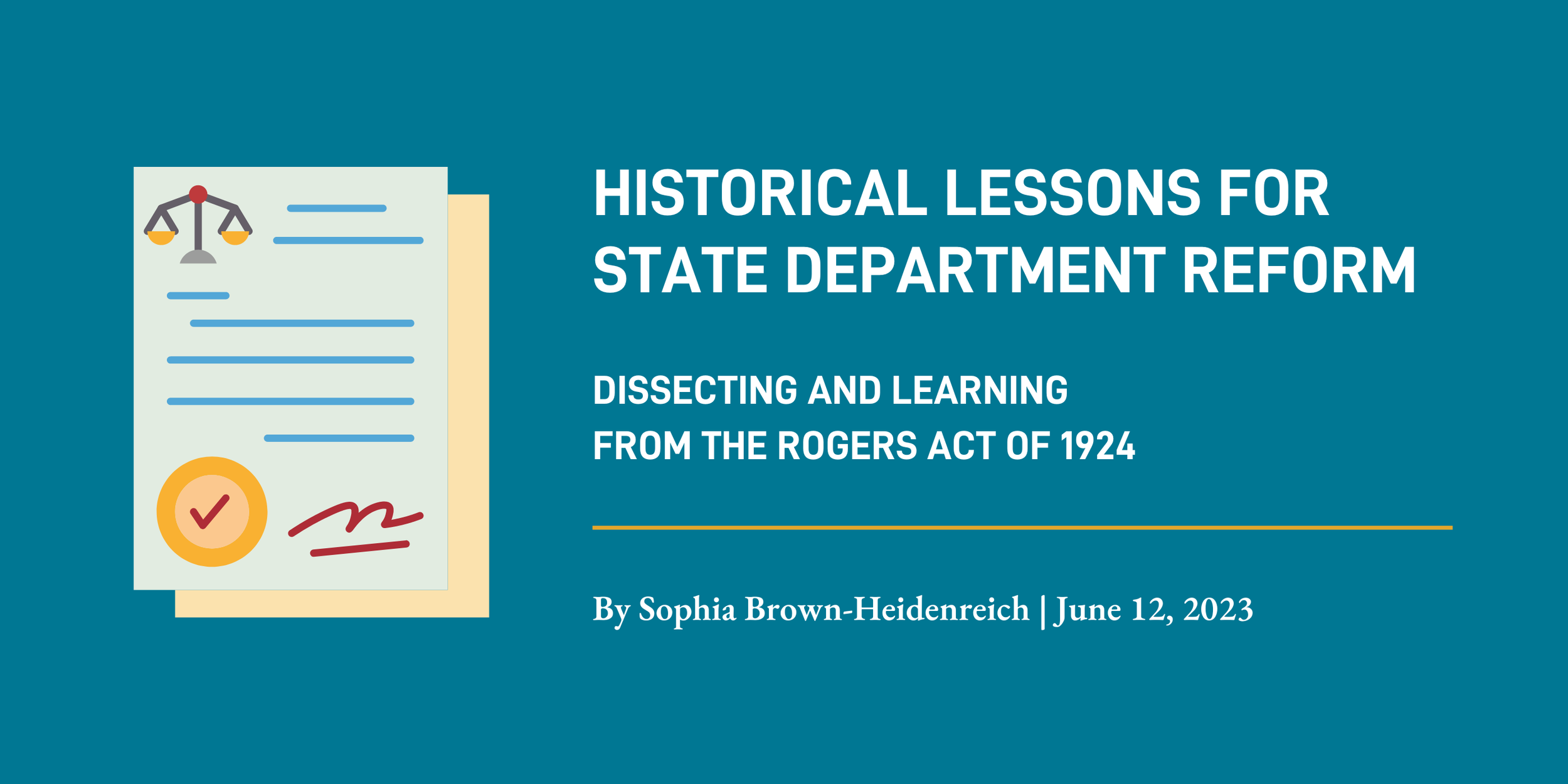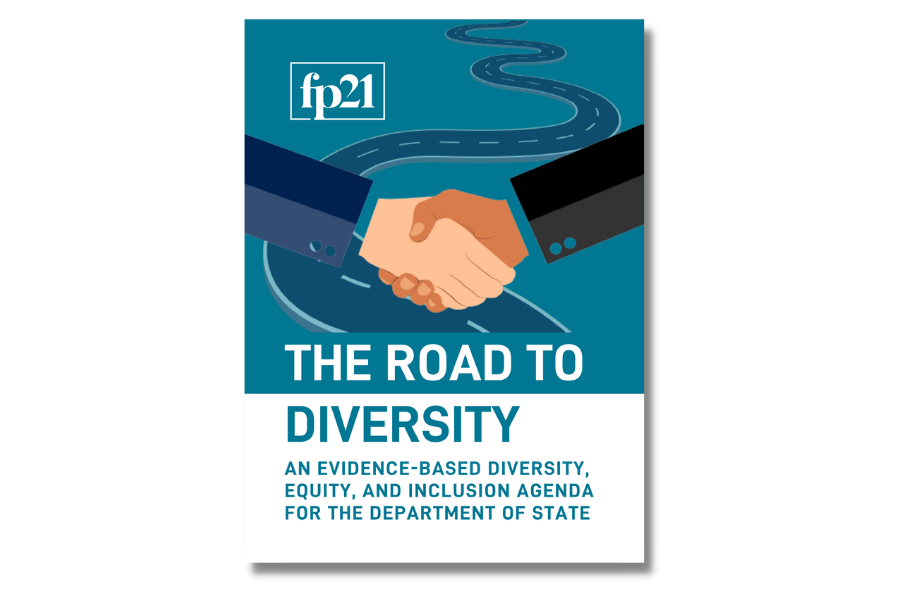Publications
fp21 is building a new culture of foreign policy. Explore our publications below.

New State Department Diversity Data Exposes New Challenges and Opportunities
Ellice Huang, Thomas Scherer, Vic Marsh, & Dan Spokojny: How diverse is the State Department? Recently released State Department demographic statistics leave much to be desired. fp21 helps fill this gap by using sophisticated data science tools and archival information to examine representation in American diplomacy.

Incentivize Highly Skilled FSOs to Return to Foggy Bottom
Dan Spokojny: The State Department recently announced updated rules for the reentry of recently departed Foreign Service Officers. Many would jump at the chance to return to the Department if empowered to apply their new leadership, technical, and substantive skills. Greasing the skids for talented officers to return to Foggy Bottom would energize Secretary Blinken’s modernization agenda and set diplomacy on a better path into the future.

Historical Lessons for State Department Reform
Sophia Brown: The Rogers Act, which turns 100 next year, paved the way for the American diplomatic service to become the world’s most influential. Yet many of the problems that the Rogers Act sought to address a century ago have reawakened in today’s State Department: struggles with meritocracy, worrisome politicization, and a siloed personnel system. The history of the Rogers Act offers lessons for how today’s reformers may succeed or fail.

The State Department’s New Strategy Prioritizes Evidence-Based DEIA
Rachel George and Beverli DeWalt: The State Department just announced its five-year strategic plan for Diversity, Equity, Inclusion, and Accessibility (DEIA). The strategy, led by the new Office of Diversity and Inclusion, commits to an evidence-based approach to diversity. This emphasis on evidence in the new strategy lays a necessary foundation for ensuring that diversity efforts have their intended effects, and, critically, that they do no harm.

The Road to Diversity: An Evidence-Based Diversity, Equity, and Inclusion Agenda for the Department of State
This report deepens our understanding of the research on workplace diversity, equity and inclusion (DEI) initiatives and build a strong foundation of evidence for policymakers to use. We evaluate the most common recommendations to improve DEI based on the best-available evidence in organizations, categorizing each recommendation based on its likelihood of success according to the research.

fp21 Applauds Blinken’s Modernization Steps but Urges Deeper Reforms
Dan Spokojny: Advocates for a strong Department of State should celebrate the Modernizing Diplomacy Initiative. Yet, taken as a whole, the Initiative feels a bit more routine than modern. While everything in the speech was positive – there were at least 21 deliverables organized across five “pillars” for reform – the strategy may not add up to the “historic” change Blinken suggests.

Why We Should Care About Politically Appointed Diplomats
Dan Spokojny: As Biden’s leadership team takes shape, it’s a good time to examine the research about political versus career appointments. On the one hand, presidents rely on political appointees to implement the agendas that got them elected. On the other hand, empowering long-serving career officials ensures the most experienced officials are influential in the policy process and incentivizes the development of expertise through a career in government service.

Breaking Away from “Born, Not Made”
Christina T. Le: It is often said by department leaders that great diplomats “rise to the top” and “hard work is rewarded,” but it isn’t clear how a person’s efforts will deliver promotions and opportunities. If we can create a new organizational culture—one where we acknowledge that diplomats are not born, but made—we are more likely to achieve the results we seek. In this manner, we are more likely to attract, retain and reward the workforce we both need and have promised the American people.

